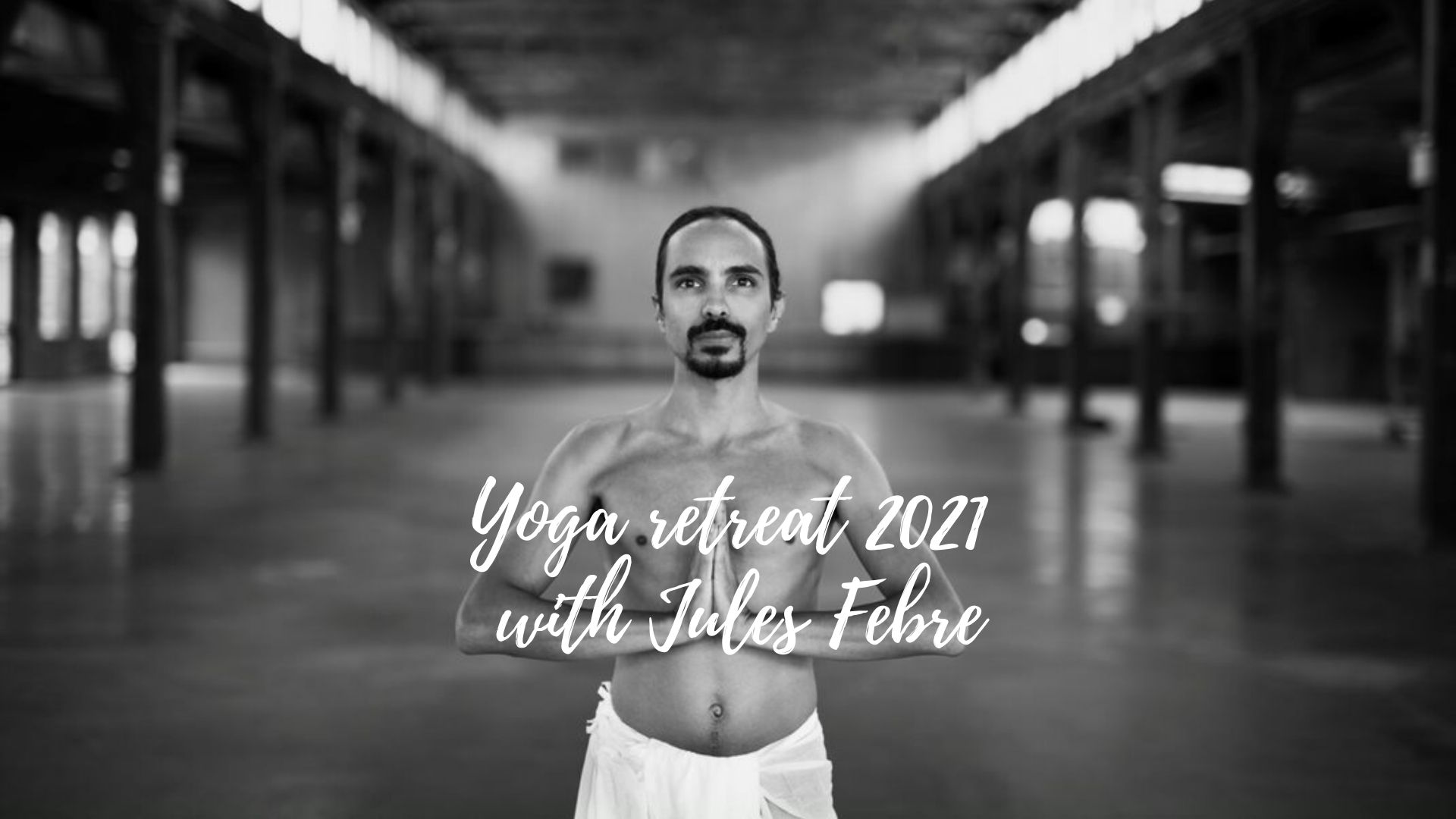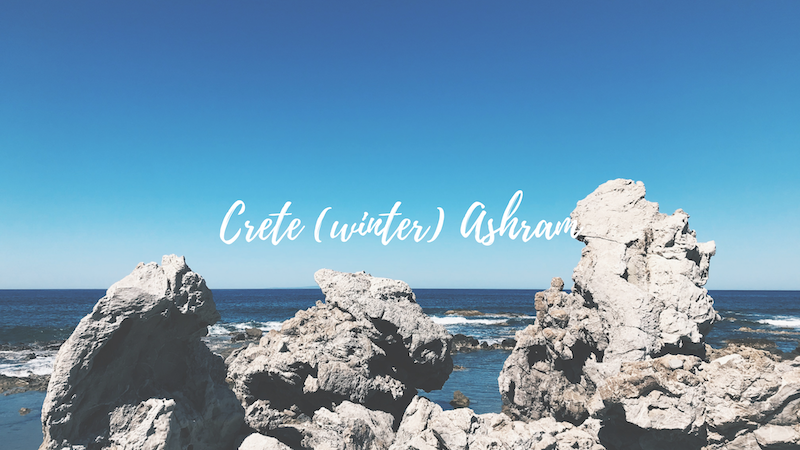
by Christina Zanni
The immediate danger of the covid 19 pandemic, provoced a response of a scale and speed, dramatically different to any action taken before, in order to cope with the climate change, inspite of the repeated scientific warnings. With the factories shutting down, tourism and travel
paralysing and people confined in their homes, the air pollution has been drastically decreased.
In a human level, the crisis brought about something almost unprecedented, for most of us. An obligatory pause. Many of our routes to escape, regulate or avoid aspects of our lives, are not functioning any more. Now the conditions are such, that we can observe more clearly the quality of our relationship with ourselves, our family, our partner. Observe how we manage our time and which are our true values and priorities.
It is a time where things are in the air, uncertain and malleable, a time for reflection and creative change. Before the coronavirus crisis subsides and everything falls back into place, it is a time to take important decisions: How can we maintain the benefits of the Covid 19 crisis for the environment? How shall we reconsider what we define as basic needs, entertainment, socializing and learning, in order to develop a more sustainable lifestyle? Which values should we rediscover as yoga practitioners and how should we enhance and support a creative change?
To describe the quality of creative change, comes to my mind what Gregor Mahle calls “creative discomfort” during the asana. When a muscle stretches and strengthens, we experience discomfort, but if the discomfort crosses the line into pain, then injuries occur. In the case of the Covid 19 crisis, the fast, emergency measures taken during the pandemic, where beneficial for the environment but severely damaging, compared to a gradual transition to reduce emissions, adopted decades ago. Such a change in our lifestyle would have been uncomfortable, as every change is, but not painful or detrimental for the economy. This swift in our lifestyle, should grow out of reshaping our vision, so limitless growth and consumption will not be the core values. Conscious consumption, solidarity, social and personal well-being should be emphasized. Creative change, requires our connection with the creative energy to be innovative and come up with options and structures, consistent with a more sustainable way of life.
Looking videos from yoga classes a few decades back, I noticed how low key everything was. Clothes were simple, mats were simple, the space was simple. Nowadays, the yoga world in the high-income countries, follows in its vast majority the trend of being increasingly consumerist. Reflecting on the Yamas & Niyamas, how do we practice Aparigraha(1) in our lives? Yoga clothes have become part of the fashion industry. As we buy more and more, in order to present ourselves to the Yoga classes and Instagram photos, the so-called Yoga collection, is fueling the Fast Fashion(2).
As vegans or vegetarians, we are not always conscious that the exotic items included in our diet, have ecological footprint and a negative impact in the lives of the locals. Quinoa, the most common staple food for the Bolivians, has become unaffordable for a large part of the population, due to the massive exportation. In Mexico, by 2013, the local drug cartels, took control of the flourishing avocado fields in Michoacan, torturing or killing the farmers who were unwilling or unable to pay ransoms. These, are some examples of the darker side of the increasing demand of exotic superfoods. Veganism is definitely a much more sustainable choice comparing to the consumption of meat and dairy. Nevertheless, the root of the problem is rather out the tendency to over consume or consume unconsciously, which will finally throw things out of balance.
Even though Yoga community has been conscious about the climate change crisis, limitless travel, especially to exotic places to teach or attend workshops, has not been openly discussed as an issue. During the Covid 19 pandemic, classes and workshops have been done online through different platforms. As historian Yuval Noah Harari said, that was a social experiment which in normal circumstances, few of us would dare. But the circumstances are not normal. Workshops, were held by the teachers in their living rooms, from a different country or continent with a far greater range and far lower cost. And it looks like online workshops are going to continue. Hence we wonder if Covid 19 crisis will have an impact on human contact and if people will continue going to real life workshops, as the online ones will be offered in a much lower price. To begin with, none of the previous pandemics changed our need for human contact. We need to form communities and engage with our teacher and fellow students. And obviously certain workshops, that involve adjustments or bodywork cannot always work online. But often our priority is the information offered and in that case an online workshop, can be a far more economical and sustainable option. We can invite friends to our house to attend the workshop together, practice, cook and share food. At the end of the day, many of us admit how much we miss spending quality time with our friends.
I don’t believe in radical opinions or swifts such as” We should never take an airplane again”. But I do believe that the consumption paradigm in the wealthier countries should change, and yoga community could be a pioneer in that. According to the international institute of environment and development in London, ” It s not the number of people on the planet that is the issue, but the number of consumers and the nature of their consumption…Citizens of the higher-income nations leave a much greater footprint on our planet than people living in poorer countries. Only when wealthier groups are prepared to adopt a low carbon lifestyle and permit the governments to support such a seemingly unpopular move, will we reduce the pressure on global climate resource and waste issues”. I would take it further, suggesting not just permitting but putting pressure on the governments to do so. But first we have to be ready to take some steps ourselves. Imagine yoga instructors feeling proud about having the same mat for years. And 3 or 4 yoga pants, coming from ethical companies (notice how much longer they last and how much better they feel, comparing to the fast fashion ones?). Those of us who have backpacked in India(or elsewhere) know this light feeling of having just 3 or 4 pair of clothes….Imagine instead of advertising our quinoa salads and exotic smoothies, advertise using local products, shopping from the organic market of our neighborhood and supporting the local producers. Social action should be balanced with a personal commitment to change, otherwise our words lack potent.
In Buddha’s words in the Dhammapada: “Like a beautiful flower, full of color but without scent, are the well-spoken but fruitless words of him who does not act (as he professes to).” During the pandemic crisis, the sense that we experience, what Joseph Campbell calls, “Free fall to the future” is predominant. Nobody knows how life will be after the Coronavirus pandemic. In an attempt to gain a sense of control towards this fearsome, enigmatic side of life, we try to explain things by giving them a meaning. ” The virus came to awaken humanity” or “The virus came to purify the planet”. Maybe these theories are true-who knows?- but if we want to be honest with ourselves they are just speculations. Maybe these are times that we need to become more Socratics, admit that ” I only know that I don’t know” and learn to leave with this fearsome and enigmatic aspect, that is an intrinsic part of life. Instead of trying to figure things out, realize that we are free to choose our response to them and as the Gestalt therapist, Joan Garriga says, “Learn to take advantage of the plans that life has for us, even though they are not ours”. May we choose solidarity towards our fellow human beings and nations, severely damaged from the pandemic. And may we respond to this call for simplicity for the benefit of all. I close with a passage from the theater director, Eugenio Barba: ” Maybe the pandemic was a gift of the gods and is equivalent, to the disruption that was photography for the painter and movies for the actors of 20th century, with the ensuing discovery of amazing usages and artistic expressions. Maybe the pandemic is the forerunner of the return of our profession to humility, essence and deeper potential.”
Notes: 1. Aparigraha, the 5th of the Yamas. Baba Hari Dass, gives the following definition: To avoid the accumulation of unnecessary possessions. Its purpose, is to ecome free, not from possessions hemselves but from the attachment to them, so that one is naffected by by their gain or loss.
2. Fast Fashion: Refers to clothing manufactured at warp speed and sold at a low price. The industry has faced frequent criticism for its outsize environmental impact and workers exploitation both internationally and domestically. References Gregor Mahle, Ashtanga Yoga, The Intermediate Series weforum.org: Global Covid 19 response has slashed CO2 emissions-here is how to keep them low BBC: How many people can our planet really support? web.colby.edu: Superfood’sdark side: increasing vulnerability of farmers in Bolivia www.SBS.com.an: Superfoods have a dark side Joan Garriga& Guadalupe Mauer: El silencio fertil y la palabra nutritiva Yuval Noah Harari in James Corden’s ” The Late Night Show” Yuval Noah Harari ” The World After Corona Virus” www.theguardian.com: Are Avocados the world’s now conflict commodity?



